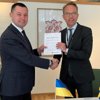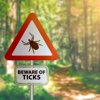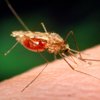Fritextsökning
Artiklar per år
Innehållstyper
-

Getinge stärker närvaron på läkemedelsområdet i miljardaffär
Getinge förvärvar amerikanska High Purity New England, som tillverkar engångsprodukter för bioprocesser. Den svenska medtech-jätten betalar närmare 1,3 miljarder direkt, men affären kan växa till att kliva över tremiljarderstrecket.
-

Studie: Blodprov för att mäta hjärnpåverkan efter neurokirurgi
I framtiden tror forskare vid Göteborgs universitet att ett blodprov skulle kunna vara ett komplement till magnetkamera för att undersöka skador i samband med kirurgi av hjärntumörer.
-

This is the future location of the new national innovation cluster
Mölndal and Goco Health Innovation City will be the site of a new national innovation cluster for advanced therapies. The business community and the Swedish government are splitting the costs of the project, which is expected to produce new treatments
-

Rapid developments in AI – “All stakeholders are struggling to understand it”
Artificial intelligence is being discussed more and more, and developments in the field are moving rapidly. As the Swedish Medical Products Agency testifies, keeping up with developments is not easy.
-

Mästare på mätning: “A och O för life science”
Temperatur, fuktvärde, tryck. Avgörande faktorer i exempelvis ett labb – men många behöver hjälp att mäta rätt. Med en ny kalibreringsmetod blir Nordtec nu marknadsledande i Sverige.
-

Study: Semaglutide tablet produces weight loss
The pharmaceutical semaglutide is effective for weight loss even when given in tablet form, according to a phase 3 study.
-

Norwegian company wins bidding battle for Sensidose
The lengthy battle to acquire medical device company Sensidose is apparently over. Generic medicines company EQL Pharma is pulling out, selling its shares and leaving the way open for Norwegian company Navamedic.
-

Samuel Lagercrantz: The government’s performance in healthcare and life sciences so far
Since the change of government in Sweden, developments in the healthcare sector have shown promising signs, but the outlook in life sciences is less promising, writes Samuel Lagercrantz in an editorial.
-

Asgard, Aniara och Astra Zeneca: Så valde bolagen sina namn – del 2
Trojaner, litterära klassiker och bisarra konspirationsteorier – här kommer den sista artikeln i vår serie om företagsnamn inom life science.
-

Alligator, Tataa, Ilya: Så valde bolagen sina namn – del 1
Att namnge ett företag kräver strategi, långsiktighet, juridiska kollar – och gärna ett mått av originalitet. Här är fem bolag inom life science med namn som sticker ut, och historierna bakom dem. Inom kort presenterar vi ytterligare fem.
-

Swedish and Ukrainian Medical Product Agencies sign an agreement
The Directors-General of the Swedish and Ukrainian Medical Products Agencies have signed a cooperation agreement.
-

The first Lyme disease vaccine faces a delay
Pfizer and Valneva’s Lyme disease vaccine, which could be the first of its kind, is facing delays of about a year. The reason is problems at trial sites in the United States, which have forced the companies to drop half of the participants in an ongoing Phase III study.
-

A new malaria vaccine offers hope but much more research is still needed
There has long been no vaccine against malaria, but there have been breakthroughs in recent years. However, it is still unclear how we become immune to the malaria parasite, and this is a vital piece of the puzzle for creating effective vaccines, says malaria researcher Kristina Persson.
-

Study: Chat GPT is more empathetic than doctors
The AI tool Chat GPT is not only more accurate when it comes to answering patient questions – the chatbot is also perceived as almost 10 times more empathetic than real doctors, a new study reveals.
-

Looking for greater Nordic cooperation – “We have Norway and Finland in our sights”
How can Medicon Valley Alliance bring the big pharmaceutical companies back to the organisation? Life Science Sweden discussed this topic and others with the cluster organisation’s new radar pair.
-

New report: Fewer PhDs in life sciences
A new report from Vinnova suggests that competency returns in the life science sector are declining.
-

Confidence in childhood vaccines is in decline worldwide
Since the pandemic, confidence in vaccinating children has plummeted. In a new report, UNICEF urges world leaders to act before the situation worsens. In 52 out of 55 countries surveyed, public perception of the importance of vaccinating children has
-

Han blir ny nordisk chef på Becton Dickinson
Det amerikanska medicinteknikbolaget Becton Dickinson and Company (BD) har anställt en ny nordisk chef, Hans Braunstein.
-

Uncertainty about the government’s life science work
The government’s national coordinator for life science, Jenni Nordborg, left her position almost four months ago. No one has yet succeeded her, and now questions are being raised both about the government’s plans for the office and the Swedish life
-

Pfizer’s record year – topped the $100 billion mark
In 2022 Pfizer, as the first pharmaceutical company in history, reached an annual revenue of more than 100 billion dollars, thereby surpassing Johnson & Johnson as the industry’s top selling business.
-

He got inside the head of Sweden’s vaccine hunter
The hunt for the COVID-19 vaccine is the theme of the new book Vaccinjägaren (The Vaccine Hunter). It tells the story of Richard Bergström’s mission as Sweden’s national vaccine coordinator and the scheming that went on behind the scenes in Europe
-

New diagnostic rules raise concerns
In a panel discussion, several voices from academia and the industry expressed concerns about the transition to the new regulatory framework for in-vitro diagnostics (IVDR). They argue that it may create significant differences between regions
-

New drug alert in the US: Rise in overdoses linked to the use of drugs for animals
A combination of the synthetic drugs fentanyl and xylazine, an animal tranquilizer, has been labelled a “growing threat” by the White House due to its role in the ongoing opioid crisis in the US.
-

Sov som en björn – och undvik blodproppar
Minskning av ett visst blodplättsprotein tycks ha en nyckelroll när det gäller att förhindra blodproppar, enligt forskning vid bland annat Universitetssjukhuset Örebro. Och för den nya kunskapen kan vi tacka en av naturens största sjusovare: björnen.